This timely film centers on a young female comedian with a host of personal issues who attempts to navigate a sexist comedy scene. It takes on trauma, abuse, and sexism. What it is not is an insightful film.
The main character, and the only one who does not come across as a caricature or a walking plot device, is played with gusto by Mary Elizabeth Winstead. We first meet Nina performing a set of confrontational, edgy material. She leaves the stage and heads to the bar, gets drunk, and takes home a stranger. This is obviously her modus operandi. However, she’s surprised by a man already in her apartment. He turns out to be a married cop who she has slept with and who has beaten her up. When she has the opportunity to leave New York City and go to Los Angeles for an audition, she jumps at it as an attempt to get away from bad habits.
Of course bad habits don’t just stay put, and she displays the same reckless behavior in LA. Luckily, the city is full of lovely, put together, if slightly kooky people intent on bettering themselves, and Nina, with great reluctance, jumps on the bandwagon. She meets a perfectly imperfect guy, Rafe (played by Common, whose charisma obliterates everyone around him), and finally deals with her trauma head-on.
All this sounds like the makings of a really solid film, but, oh boy, the dialogue. Scene after scene, there is simply no subtext, no color in the language, no forward momentum. In fact, the film seems to be a collection of the same scene over and over again. Someone arrives, tells Nina that she needs to be truthful to herself and others, leaves, and someone else arrives to tell her the same exact thing. It’s as if Nina was living in The Truman Show, but she’s not surrounded by extras but by therapists.
Occasionally, we see Nina perform stand-up. The main problem with these sequences is that Winstead, as fine an actress as she is, lacks the timing to land the jokes. So, we are watching her tell jokes that are designed to make us laugh and feel uncomfortable, a tough undertaking at the best of times. The idea is that here onstage, Nina can be her honest self, yet her behavior offstage is not much different. So when finally, after endless scenes where LA types beg her to get help, she finally states what we all figured out ages ago: she is a survivor of trauma. To Winstead’s credit, even with the repetitive dialogue and impossible scenarios, she accurately portrays a deeply troubled person who has been abused.
At one point, Rafe invites Nina for dinner for conversation, and no sex, and that’s what they do. There is a close-up of both their faces as they lie on the floor, each in a different direction, so one is right side up and the other is upside down. I challenge anyone to say that’s how people chat on a date, or at all for that matter, in those positions.
That’s the point, nobody talks like this. Heck, nobody in movies talk like this. It cheapens the deeply serious subject All About Nina is attempting to tackle. The subject deserves better than what is offered.

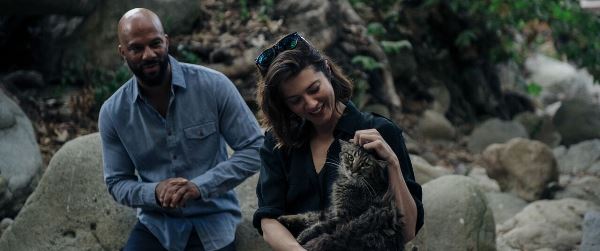
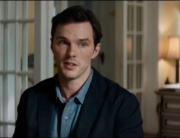
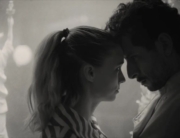
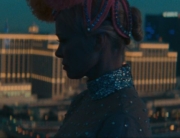

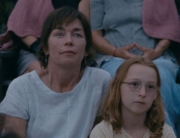
Leave A Comment